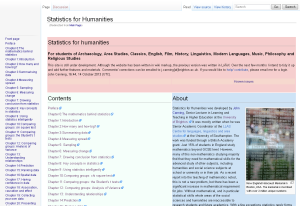Clearing out the office after ten years in the job has brought back lots of memories. In sorting through my stuff I have unearthed materials and publications from many organisations and projects which no longer exist, their functions having been absorbed by other organisations, or in some cases eliminated altogether.
Subject centres
Having worked at the Subject Centre for Languages, Linguistics and Area Studies, I am unlikely to be dispassionate about the subject centre network. Publications such our Liaison magazine and the English subject centre’s Wordplay are among accidental archive. Some of the subject centres published academic journals which have been taken over by the Higher Education Academy or commercial publishers.
The Learning and Teaching Support Network.
Before the Higher Education Academy there was the Learning Teaching Support Network (LTSN) which consisted of the 24 subject centres based in UK universities and a Generic Centre based in York. The LTSN Generic Centre published a number of useful guides on topics such as employability and assessment. These were rebranded and republished when the HEA was formed.
Fund for the Development of Teaching and Learning (FDTL)
FDTL consisted of five phases, each open to different subjects. Universities were able to bid for subject specific teaching development projects. If I remember rightly phases 1, 2 and 3 predated the formation of the subject centres. A number of languages projects were funded in phase 4, notably in the area of residence abroad.
National Disability Team
I have one of their mouse mats on my desk right now. Produced lots of good resources for helping university teaching staff address the practical and legal aspects of supporting disabled students. I seem to remember that the Special Education Needs and Disability Act (2001) was a key focus for some of this work.
Centres for Excellence in Teaching and Learning (CETLs).
CETLs received a total of £315m to enhance learning and teaching across the sector. The legacy was mixed, as outlined in the HEFCE evaluation:
The report concludes that the legacy of the programme rests largely in individual staff and in those institutions which have embedded CETL developments, rather than in a general enhancement of teaching and learning across the entire higher education sector.
The funding sounds substantial (and indeed it was) but a lot of the funding went into infrastructure, notably new or extensively refurbished buildings.
14-19 Diplomas
Mainly paper work here. The languages and humanities diplomas occupied a lot of our subject centre time in the last year or two of the previous government. The languages, humanities and science diplomas were to be the last to be introduced. The policy was abandoned when the present Coalition Government took power. Although extensive consultations took place and drafts of the curriculum were written, these diplomas never implemented. Possibly a missed opportunity to break the tyranny of A-levels.













